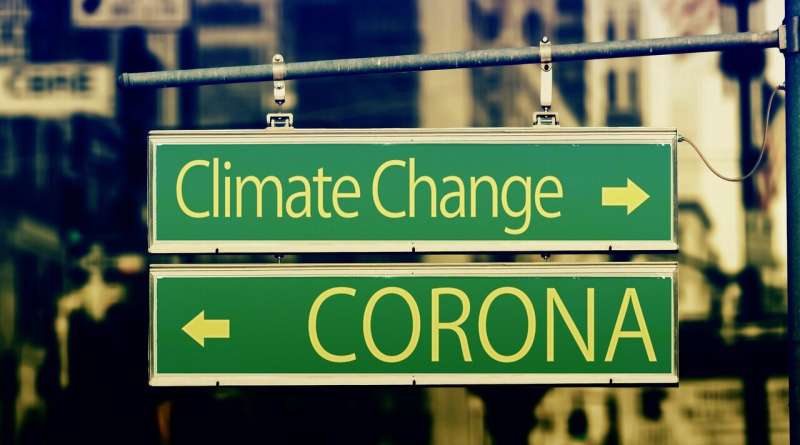Climate change and COVID-19: The denial playbook is the same

The phrase "" resonates more than ever as two disasters unfold: the pandemic and . One is occurring with horrifying rapidity and ; both would be far less damaging if scientific advice were heeded earlier.
In the United States, the Trump administration has responded to the COVID-19 crisis using tactics it honed in the climate arena: ignoring or burying relevant scientific information, pushing misinformation, and silencing scientists who warn us of the dangers. This pervasive "see no evil, hear no evil" approach has handicapped the U.S.'s ability to respond to both of these unfolding crises.
From the start of the pandemic, scientists who spoke out about the increasing threat from COVID-19 were The same thing has happened to climate scientists since the early days of the Trump administration. The mentality that climate change is a taboo subject has taken root so firmly that it filtered down from top-level political officials and is by lower-level career employees in scientific agencies.
In the early days of the administration, climate change information at an alarming rate from government websites. There was a considerable public outcry in late July when the Centers for Disease Control and Prevention appeared to cave to pressure from the administration and from its website. This event parallels the Trump administration's behavior around climate change.
The similarities do not end there, as the Climate Science Legal Defense Fund and Columbia Law School's Sabin Center for Climate Change Law are documenting in our . We have found that limiting or interfering with scientists' ability to communicate publicly about their work is a frequent theme of the Trump administration. For example, the administration prevented a scientific expert from to Congress about the threats posed by climate change. It repeated this tactic when it , director of the National Institute of Allergy and Infectious Diseases, from testifying to Congress about COVID-19.
Similarly, the administration of politically unpalatable research, and it has now done with COVID-19 research. The use of budget cuts to halt inconvenient research is another common tactic. The administration defunded politically undesirable research on climate change and has now cut funding for .
Other patterns include overruling or revising scientific conclusions because of political considerations and forbidding scientists to mention or the pandemic.
This is far from a complete list of parallels. Unfortunately, when faced with inconvenient scientific research, the current administration only digs deeper into its toolkit of censorship and misinformation.
In April, policy experts at the Rocky Mountain Institute wrote that accurate and transparent data is crucial to informed decision-making about both COVID and climate change, and to maintaining public trust. They wrote that to combat COVID and climate change effectively, it will be necessary to "ambitiously connect data across diverse global systems to make the right investments at the right time."
One of the first and most pressing tasks for the next administration will be to restore science to its rightful place and restore a culture of scientific integrity to institutions across the federal government. These are among the reasons why the Climate Science Legal Defense Fund has joined dozens of other organizations to , written to understand existing scientific integrity protections, and supported expanding safeguards for federal scientists under .
Without the federal government re-prioritizing science, we cannot hope to effectively address both the COVID-19 and climate change crises we currently face.
Provided by Earth Institute at Columbia University
This story is republished courtesy of Earth Institute, Columbia University .




















